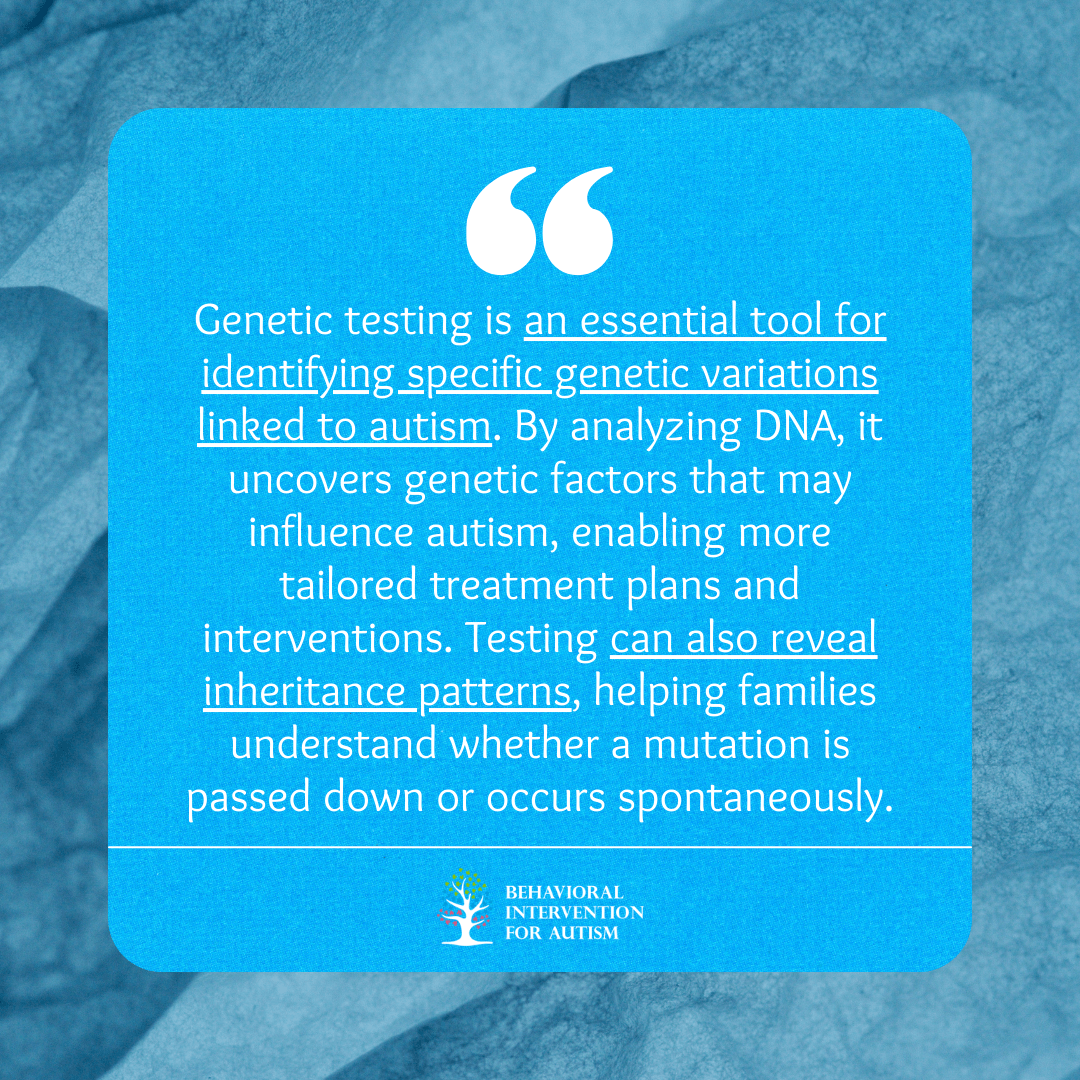
Table of Contents
Understanding the genetic factors behind autism is crucial, as inherited genes play a significant role in the development of this complex condition.
Genetic Factors in Autism
Autism, a neurodevelopmental disorder, is strongly influenced by genetic factors. Research indicates that genetic variations significantly contribute to the risk of autism spectrum disorder (ASD), although the exact mechanisms are still being studied.
Inherited genes, passed from parents to children, play a crucial role in autism development. Various genes linked to ASD have been identified, with inheritance patterns that may be either dominant or recessive.
Understanding how genetic factors and inheritance interact is key to unraveling autism’s complexities. By examining genetic variations, researchers can gain valuable insights into the hereditary nature of ASD.
Genetic Inheritance
The inheritance of autism genes is complex, involving genetic contributions from both parents. Autism genetics are multifaceted, with various genetic factors influencing the risk of ASD. While specific genes have been identified, the genetic landscape of autism is heterogeneous, making it difficult to pinpoint a single gene responsible.
Recent research shows that both parents contribute to the genetic inheritance of autism, with genetic material from each parent potentially influencing the likelihood of ASD. Although earlier studies emphasized maternal genetics, current findings highlight the role of both parents in the development of autism.
Parent | Genetic Contribution |
Maternal | Approximately 30-40% |
Paternal | Approximately 20-30% |
The inheritance of autism genes is a complex process influenced by genetic factors from both parents. While the exact contribution of each parent may vary, the interaction of genetic material from both parents plays a critical role in shaping the genetic landscape associated with autism spectrum disorder. Understanding the nuanced interplay of genetic inheritance can provide valuable insights for families and individuals navigating the complexities of autism genetics.
Maternal vs. Paternal Contribution
Understanding the genetic influences on autism involves examining both maternal and paternal contributions. Maternal genetic factors, such as specific DNA variations, can increase the risk of autism by affecting neurodevelopmental processes in the fetus. These genetic alterations, particularly those related to neuronal development, play a key role in the development of autism traits.
Paternal genetic influence, although less studied historically, is also crucial. Recent research shows that genetic mutations in the father’s DNA can impact neurodevelopment and increase the risk of autism. Both maternal and paternal genetic factors contribute to autism spectrum disorder, providing a more complete picture of its genetic basis.
Exploring how maternal and paternal genetic factors interact is vital for understanding autism’s complex genetic landscape. This knowledge helps researchers and healthcare providers develop a clearer understanding of autism’s genetic underpinnings.

Factors Influencing Genetic Expression
Understanding the inheritance of autism genes involves considering both genetic predispositions and the influence of environmental factors. Epigenetics plays a key role, as it refers to changes in gene expression without altering the DNA sequence. These changes can be shaped by environmental factors like prenatal toxin exposure, maternal nutrition, and early childhood experiences, potentially contributing to the development of autism spectrum disorder (ASD).
The interaction between genetic and environmental factors is complex. Certain genetic variations may increase susceptibility to ASD, while environmental factors such as pollution, prenatal stress, and socioeconomic status can act as triggers, influencing how these genes are expressed. This interplay is crucial to understanding ASD and identifying potential risk factors.
Ongoing research aims to unravel how genetic and environmental factors interact throughout development. By exploring these influences, scientists hope to develop targeted strategies for diagnosis, treatment, and support, enhancing care for individuals with ASD and their families.
Genetic Counseling and Testing
Genetic counseling and testing are vital in understanding the genetic aspects of autism, providing crucial insights for individuals and families. Genetic counselors are trained professionals who help interpret genetic information, guide families through the testing process, and support them in making informed decisions about care and interventions.
Through genetic counseling, families gain clarity on inheritance patterns, potential risks, and the implications of genetic findings. This process helps parents and caregivers navigate autism’s complexities, empowering them to make decisions that best support their child’s development and future.

Together, genetic counseling and testing equip families with a deeper understanding of autism’s genetic components and provide resources for making informed decisions. This comprehensive approach helps individuals and families navigate the challenges of autism, ensuring they receive the necessary support to advocate for the best possible outcomes.
Get the Support You Need Today
Research has shown that autism spectrum disorder (ASD) may be influenced by genetics, with both parents potentially carrying genes that increase the likelihood of their child being diagnosed. However, the exact genetic factors remain complex, and there’s no definitive answer to which parent carries the autism gene. Regardless of genetic origins, early intervention is key. Behavioral Intervention For Autism offers ABA programs in Florida designed to help children with ASD develop essential skills and thrive in a supportive environment. Our compassionate team provides personalized therapy programs that focus on each child’s unique needs. If you’re ready to explore how we can support your family, contact us today to learn more about our services.
- 9 Common Obsessions of Children With Autism You Should Know - February 25, 2025
- What is Neurodiversity? A Guide to Embracing Differences - February 25, 2025
- Understanding Hyperfocus in Autism: What It Means and Why It Happens - February 25, 2025
